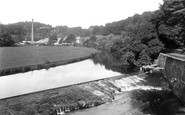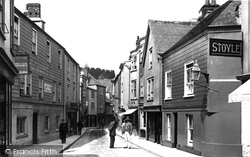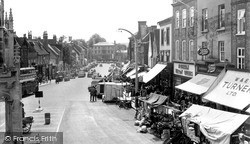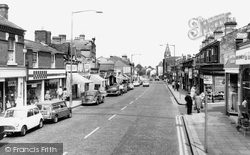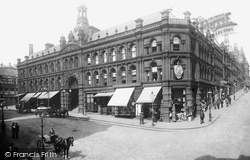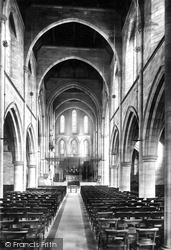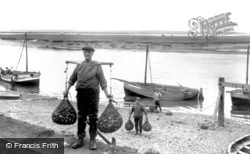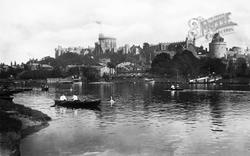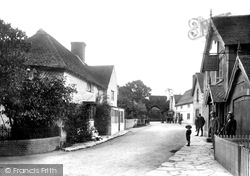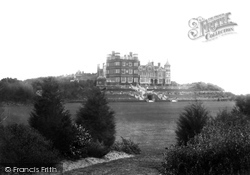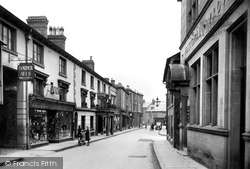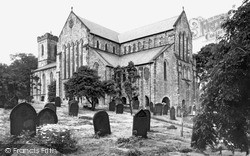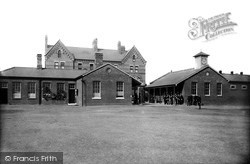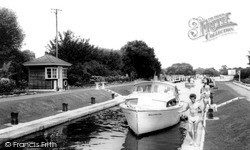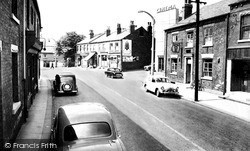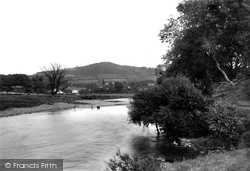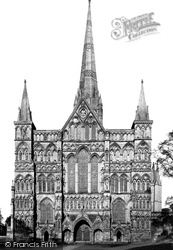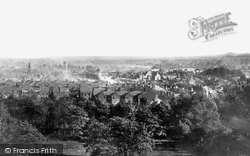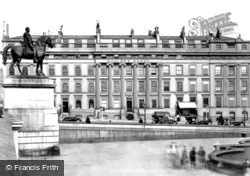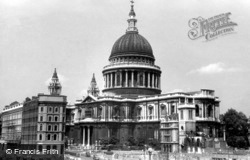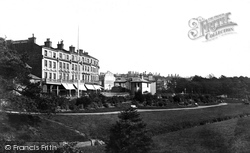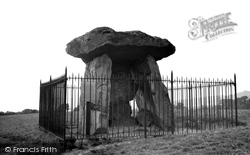Places
Sorry, no places were found that related to your search.
Photos
5 photos found. Showing results 821 to 5.
Maps
83 maps found.
Books
Sorry, no books were found that related to your search.
Memories
1,127 memories found. Showing results 411 to 420.
What Went On
This is from about the 1950s. Along Grange Road was a huge piggery and it was owned by the Liddle family, by, did it pong. Further along you came to the railway crossing with the sign STOP, LOOK, LISTEN in red, this was where the steam ...Read more
A memory of Newburn in 1952 by
Christmas
This is about Christmas Day 57 years ago, and how things have changed. Even though we had nowt it was still a very exciting time, as it is now, but money was tight and we could only have the presents that each family could afford. What I ...Read more
A memory of Newburn in 1952 by
Ty Mawr Farm
Ty Mawr Farm is situated on the breast of the Betws Mountain overlooking the village of Gwaun Cae Gurwen. The well known Welsh actress Sian Phillips was born there in 1933. In the 1950s and 60s it was occupied by the Campbell ...Read more
A memory of Gwaun-Cae-Gurwen in 1952 by
The
The bridge from which this photograph was taken was a "humpitty-backed" stone bridge where a pair of arches spanned the river and a smaller arch crossed the "lade". The bridge was in service from about 1840 until the new bridge was ...Read more
A memory of Bridge of Allan in 1952 by
On The Move
In the summer of 1952 I learnt that my parents had decided to move from our home in the Midlands to the West Country as my father wished to return to where his relatives lived. It came as no surprise therefore, when one day they ...Read more
A memory of Dartmouth in 1952
St John's C Of E Primary School
I attended St John's from 1952 to 1959. This was an all girl's church school with about 60 children in three classrooms, with a hall where we had dinner and danced to the BBC's "Music and Movement". We used ...Read more
A memory of West Hendon in 1952 by
Childhood
I was born in London, and my family moved to Culberry Cottage in East Pennard when I was about 8yrs or 9yrs old. That was a short but happy stay in the area amongst the farm lands, animals and walks in the fields picking wild daffodils ...Read more
A memory of East Pennard in 1951 by
Saturday Girl In Snows The Bakers.
I worked for 3 years as a Saturday girl in Snows the bakers (in fact the head office at the time) at the Brondesbury end of Kilburn High Road. It was not far from the Foresters Hall which I understand ...Read more
A memory of Kilburn in 1951
My Childhood Holidays In Abercwmboi
I was born in 9 Graig Terrace, Abercwmboi at my grandparent's house; Charles William and Elizabeth Mary Davies. My mother was Christabel Viola Davies, (married name Mills). We moved to Penwaun when I was 6 ...Read more
A memory of Abercwmboi in 1951 by
Junior Years 1947 1951
The junior years at Sydney Road School were quite good for me, despite the fact that I was the worst fighter in our year. Before a blow had even touched me I would be crying [talk about Coward of the County], ...Read more
A memory of Intake in 1951 by
Captions
1,233 captions found. Showing results 985 to 1,008.
Totnes had a medieval wall around the centre, much of it still intact.
A large number of the buildings in the picture are now Grade II listed, but it is not likely that the unkempt state of the High Street in 1955 did much to foster civic pride.
It had already been popular with wealthy city merchants for a century or so, and much housing development had taken place along the High Street.
The cast iron frame contained two 60ft-high domes, and huge figures of Pomona and Flora stood over the arched entrance. This market was demolished in 1973.
The high arched ceiling is supported on slim pillars of pale stone, creating a light and welcoming interior. The pulpit is of alabaster and the screen of ironwork.
These heavily-laden fishermen use shoulder yokes to carry their shellfish, much as a milkmaid carries her buckets, paddling out of the shallows from their open boats, the 'Nell' and 'Armistice'.
However, much of what we see now owes more to the 1820s; at that time George IV expended the then fabulous sum of £1,000,000.
A feature of the scene is the limestone paving flags that neatly line The Street, and the trimmed trees forming an arch across the roadway. The Half Moon Inn (landlord W Teasdale), awaits customers.
The arch at the bottom of the terrace is a sheltered seating area.
The view is very much the same today, although the grand, colonnaded entrance to The Black Lion Hotel (centre left) has been demolished.
In 1908 the east end of the chancel was extended and the transepts added; the gradient of the site was such that the archi- tect, Temple-Moore, designed a structure supported on a round- arched
These barracks were built about three years after the Infantry Barracks, but the construction came under much criticism.
West of Sunbury and on the former Middlesex bank of the Thames is Chertsey Lock, near Chertsey Bridge, an austere seven-arch stone bridge of the 1780s by James Paine.
This is the shopping centre of Kippax, much changed on the left, but untouched on the right.
Certainly it is much loved by fishermen. The river has also been a popular play area for local children, as this late Victorian scene shows.
The Arndale House building is much the same, but the cinema has made way for the Cornhill shops, and beyond the canopy of the Town Hall extension are the new shops which have
For much of the 20th century, the flitches were supplied by Dunmow`s own bacon factory, which occupied a site near the now-vanished railway station.
These heavily-laden fishermen use shoulder yokes to carry their shellfish, much as a milkmaid carries her buckets, paddling out of the shallows from their open boats, the 'Nell' and 'Armistice'
Viewed from the west, the façade of the west front is dominated by the Great West Window and the Triple Arch Door.The west front of many cathedrals were intended to be showpieces.
Of the priory, however, little remained even in 1900 when this photograph was taken, save for the remains of the cloisters and a stone arch.
It was commissioned from Sir Francis Chantrey in 1829, and it was originally to go on top of Marble Arch, which then stood in front of Buckingham Palace.
Five years after the end of the Second World War, there was still much evidence of the severe bombing around the cathedral.
The fine tower and spire of St Peter's Church dominated much of central Bournemouth, until unkind planners allowed the construction of too many large buildings nearby.
There has been much debate about the age and significance of these four giant stones a mile north of the village.
Places (0)
Photos (5)
Memories (1127)
Books (0)
Maps (83)



